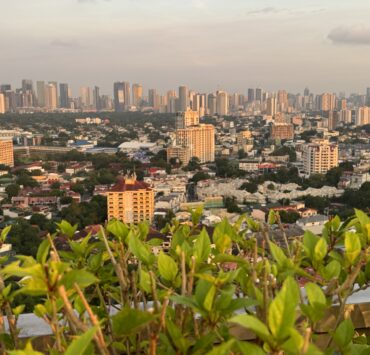What’s happening in our country: A retiree’s point of view

The other day, I sat on a concrete bench at my favorite spot in Plaza Rizal here in Naga City to rest my bandaged leg after a walk from the public market. While munching on freshly boiled peanuts, thoughts flooded my mind like the rain that followed.
I need to consolidate the suggestions I’ve made to the government and nongovernment organizations (NGOs) over the years to help them achieve their objectives more effectively and sustainably, particularly in uplifting the lives of poor Filipinos. Although my ideas and insights have been ignored as if I were Don Quixote, I find some solace in the growing recognition among people that success should be measured by outcomes and impacts, not just outputs.
Outputs merely track completed activities or projects, such as constructing a road or school building, without demonstrating whether objectives or goals have been met. It’s time to stop applauding political dynasts, like mayors or governors, who boast about infrastructure accomplishments without providing evidence of their actual benefits. Did enrollment rates increase, or dropout rates decrease because a new classroom was built? Did a road improve access to essential services or economic opportunities?
In the case of NGOs, it’s time to move beyond merely praising them for conducting various training sessions. They must demonstrate measurable improvements in the knowledge and skills of trainees. I have tirelessly emphasized this critical distinction in my writings and will continue to do so.
At Plaza Rizal, I’ve noticed a decline in the number of regular visitors though foot traffic from passersby remains steady. This suggests several issues. Perhaps the plaza’s dreary appearance is a contributing factor. The place hasn’t been refreshed in a while. Discolored paint and cracked concrete dominate the landscape.
Meanwhile, malls offering street food and other conveniences give stiff competition to similar businesses at the plaza. For many, malls are more accessible and convenient, especially during power interruptions that can last up to six hours during the dry months. While this shift may reflect some improvement in people’s economic condition, it’s disheartening to imagine the plaza resembling a cemetery soon. A place of peace and quiet, yes, but devoid of life and vibrancy.
On a broader scale, it is vital for the Philippines that emotions—like anger and frustration—are communicated alongside information about the country’s leadership crisis and economic decline. This message must reach the C, D, and E classes, who ultimately determine election outcomes. It’s the only nonviolent path to meaningful change, as advocated by many in the A and B classes, especially on social media platforms. Relying on a future electorate equipped with critical thinking skills may take generations, if it happens at all. By then, the country could be bankrupt, with the culprits living comfortably abroad while our children and their descendants endure misery.
That’s why I feel frustrated when I see Facebook posts or newspaper articles claiming that Filipinos who remain silent amid rampant corruption and abuse of power are complicit. This oversimplifies the issue. True revolutions are rare and transformative—like those that reshaped the United States (1775–1783), France (1789–1799), Russia (1917), China (1949), Cuba (1953–1959), Iran (1979), and others. The Philippines has already experienced its “only in the Philippines” revolution with Edsa 1, a peaceful uprising that united the people and restored democracy. Edsa 2 and 3 were driven by greed for money and power rather than a desire to address systemic issues.
What we need is the strength and unity of our forebears, who endured the hardships of World War II to liberate the country from Japanese occupation. However, we currently lack the kind of true leaders they had. We don’t have a unifying figure like Ninoy Aquino, who galvanized the rich and the middle class, or a spiritual leader like Cardinal Sin, who rallied people to take to the streets.
Nono Felix

















